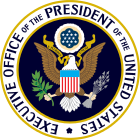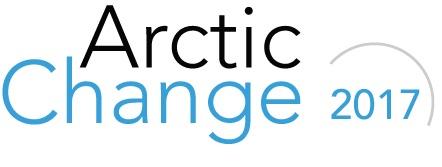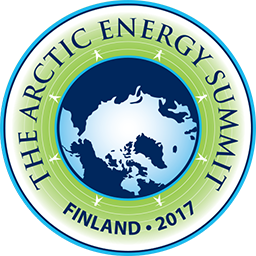|
|
|
|
|
|
|
|
No Arctic science events are scheduled for today.
|
Media
 Trump Administration Moving Closer to Picking Science Director. Trump Administration Moving Closer to Picking Science Director. President Donald Trump could be nearing a decision to appoint a director of the White House Office of Science and Technology Policy (OSTP), a post whose occupant typically also is the assistant to the president for science and technology. "There is still momentum" for choosing a director, said an administration official knowledgeable about current circumstances within OSTP. To speak openly with Eos, he requested that his name not be published. "I really think that this could be locked in within the next 4 to 6 weeks," he added. "It's overdue." Several former OSTP directors and other scientists knowledgeable about the office strongly agree with that last statement. EOS
Mars Researchers Return to Devon Island, Nunavut, for 'Twin Mission' with Utah. A team of six would-be astronauts is settling into a research station on Devon Island, Nunavut, north of Baffin Island. The team is studying lichens and geology, and in the process, learning how astronauts can someday live together on Mars. The researchers are fresh off a related assignment in the Utah desert. The two studies are "twin missions," according to Paul Sokoloff, a researcher at the Canadian Museum of Nature. CBC News
 Medvedev: Some Arctic Development Project Will be Suspended. Medvedev: Some Arctic Development Project Will be Suspended. Russia will have to revise its development priorities in the Arctic and postpone some projects to save resources, Prime Minister Dmitry Medvedev said. Dmitry Medvedev said at a meeting on federal spending for regional development programs in 2018-2020 that core development zones should be created in the Arctic. These zones should be combined wherever possible with local mining and raw materials areas to provide the basis for the region's development. "When resources are in short supply, and it is a fact that huge resources are needed for Arctic projects, we will have to revise our priorities so as to decide what must be done as soon as possible and what can be postponed," Medvedev said. The Arctic
DoD: US, Russia Could Use Platform Similar to Arctic Council to Discuss Space. The United States and Russia could address and discuss the issues related to the space with a platform similar to the Arctic Council, Space Policy Analyst at the Office of the Undersecretary of Defense, Lieutenant Colonel David Anderson, told Sputnik on Thursday." I think if we were to set up a super national organization very similar to, the US and Russia have engaged I think in the past in such forms, in the Arctic Council, as we have shared interests within the Arctic that we could actually utilize the same type of model that allows different levels of engagement," Anderson said. Sputnik News
Nunavut Community Wins 6-Year Battle to Stop Seismic Testing in Arctic. The Inuit Hamlet of Clyde River won a nearly six-year battle today to stop seismic testing in the Arctic that could kill or maim the marine mammals upon which they rely for food and jobs. The Supreme Court issued a unanimous decision determining the National Energy Board failed miserably at properly consulting Inuit and didn't adequately assess the impact on treaty and Indigenous rights of the proposed oil and gas exploration project before approving it in 2014. Global News
|
|
Future Events
** New this week ** Map Exhibit: Explore Alaska's Arctic Waters, August 4, 2017 (Anchorage, Alaska USA). Join Audubon Alaska to celebrate the release of our 'Ecological Atlas of the Bering, Chukchi, and Beaufort Seas,' a comprehensive atlas featuring over 100 maps of Arctic marine mammals, seabirds, sea ice, subsistence, and more. Come view a selection of our dynamic maps, learn about our conservation work in the Arctic, and find out how you can advocate for the protection of these ecologically vital places.
As the Symposium is organized jointly by two leading Research Institutes of Russian Academy of Science - Institute of Water Problems and Melnikov Permafrost Institute, particularly the contributions on following research topics are welcome:
- Observational evidences of change in coupled permafrost-hydrology system.
- Present state and future projections of local, regional and pan-Arctic hydrology.
- Modeling studies representing landscape evolution, dynamics of water storages and permafrost degradation.
- Impacts of permafrost hydrology changes on local communities.
VII International Conference on Cryopedology, August 21-25, 2017 (Yakutsk, Russia). The conference will be hosted by the Institute for Biological Problems of the Cryolithozone of the Siberian Branch of the Russian Academy of Sciences (SB RAS). Plenary reports will be organized in the hall of the Academy of Sciences of the Sakha (Yakutia) Republic. The official languages of the conference are English and Russian (with translation). All technical facilities (projectors, computers, video sets) will be available during the conference for presentation of papers. Additional information will be available soon. See the Facebook page here.
 2017 University of the Arctic Rectors' Forum and Conference, August 27-29, 2017 (Aberdeen, Scotland). This conference will also consider how northern scholarship can add to discussions on the North into broader terrains of intellectual engagement. In so doing, it will challenge dominant paradigms of research in both the natural and the social sciences, above all by calling into question the very separation of the world of nature from that of human society which underwrites the distinction between these two branches of scientific inquiry. In its place the conference will seek to forge a new practice of interdisciplinary research, done in collaboration with northern residents and on their terms, which recognizes that every discipline is itself an ongoing conversation, or a way of knowing, rather than a compartment within an overarching, hierarchically organized system of knowledge. Conversations from the North will, then, help to generate a science that is more open-ended, responsive to environmental variation and respectful of the wisdom of inhabitants. 2017 University of the Arctic Rectors' Forum and Conference, August 27-29, 2017 (Aberdeen, Scotland). This conference will also consider how northern scholarship can add to discussions on the North into broader terrains of intellectual engagement. In so doing, it will challenge dominant paradigms of research in both the natural and the social sciences, above all by calling into question the very separation of the world of nature from that of human society which underwrites the distinction between these two branches of scientific inquiry. In its place the conference will seek to forge a new practice of interdisciplinary research, done in collaboration with northern residents and on their terms, which recognizes that every discipline is itself an ongoing conversation, or a way of knowing, rather than a compartment within an overarching, hierarchically organized system of knowledge. Conversations from the North will, then, help to generate a science that is more open-ended, responsive to environmental variation and respectful of the wisdom of inhabitants.
- Small and off-grid community energy solutions
- Oil and gas development
- Renewable energy
- Regulation and Financing
- Transportation and transmission
The AES is a multi-disciplinary event expected to draw several hundred industry officials, scientists, academics, policy makers, energy professionals and community leaders together to collaborate and share leading approaches on Arctic energy issues.
2017 Arctic Circle Assembly, October 13-15, 2017 (Reykjavik, Iceland). The annual Arctic Circle Assembly is the largest annual international gathering on the Arctic, attended by more than 2000 participants from 50 countries. The Assembly is held every October at the Harpa Conference Center and Concert Hall and is attended by heads of states and governments, ministers, members of parliaments, officials, experts, scientists, entrepreneurs, business leaders, indigenous representatives, environmentalists, students, activists and others from the growing international community of partners and participants interested in the future of the Arctic.
 Polar Law Symposium 2017 and Rovaniemi Arctic Spirit, November 13-16, 2017 (Rovaniemi, Finland). The purpose of the Polar Law Symposium is to examine, in detail, the implications of the challenges faced by the Polar Regions for international law and policy and to make recommendations on appropriate actions by states, policy makers and other international actors to respond to these emerging and re-emerging challenges. The Rovaniemi Arctic Spirit Conference is integrated with the Polar Law Symposium, which will be organized by the Northern Institute for Environmental and Minority Law at the Arctic Center of the University of Lapland. Polar Law Symposium 2017 and Rovaniemi Arctic Spirit, November 13-16, 2017 (Rovaniemi, Finland). The purpose of the Polar Law Symposium is to examine, in detail, the implications of the challenges faced by the Polar Regions for international law and policy and to make recommendations on appropriate actions by states, policy makers and other international actors to respond to these emerging and re-emerging challenges. The Rovaniemi Arctic Spirit Conference is integrated with the Polar Law Symposium, which will be organized by the Northern Institute for Environmental and Minority Law at the Arctic Center of the University of Lapland.
ArcticNet invites the global Arctic research community to Arctic Change 2017! This conference will bring together Arctic researchers and students with Inuit, Northerners and government, industry and NGO stakeholders. The world's foremost Arctic scientists will present research findings and discuss impacts of climate change and modernization. With  over 1500 participants expected, Arctic Change 2017 will be one of the largest trans-sectoral international Arctic research conferences held in Canada. We welcome students and early career researchers to participate in "Student Day" at the start of the Conference. See an excerpt from last year: ArcticNet ASM2016. over 1500 participants expected, Arctic Change 2017 will be one of the largest trans-sectoral international Arctic research conferences held in Canada. We welcome students and early career researchers to participate in "Student Day" at the start of the Conference. See an excerpt from last year: ArcticNet ASM2016.
ISAR-5 Fifth International Symposium on Arctic Research, January 15-18, 2018 (Tokyo, Japan). The fifth ISAR has been planned at the recommendation of the science steering committee of ISAR-4, which was held in Toyama, Japan in April 2015. The fifth ISAR will be devoted to discussions on environmental changes in the Arctic and their regional and global implications, to seek additional international scientific collaboration in this area by gathering, synthesizing and sharing information related to these changes occurring in the Arctic. Special emphasis will be placed on the fields of the social sciences and humanities, which were not included in the previous ISARs. ISAR-5 will consist of general sessions and special sessions. The general sessions will address the following topics: atmosphere; ocean and sea ice; rivers, lakes, permafrost, and snow cover; ice sheets, glaciers, and ice cores; terrestrial ecosystems; marine ecosystems; geospace; policies and economy; and social and cultural dimensions. Special sessions will be solicited on cross-cutting themes.
The Effects of Climate Change on the World's Oceans, June 4-8, 2018 (Washington, DC USA).
The 4th International Symposium will bring together experts from around the world to better understand climate impacts on ocean ecosystems - and how to respond. The event is hosted by a variety of groups including International Council for the Exploration of the Sea (ICES), North Pacific Marine Science Organization (PICES), Intergovernmental Oceanographic Commission of UNESCO (IOC), and Food and Agriculture Organization of the United Nations (FAO).
 POLAR 2018, June 15-27, 2018 (Davos, Switzerland). POLAR2018 is a joint event from the Scientific Committee on Antarctic Research (SCAR) and the International Arctic Science Committee (IASC). The SCAR meetings, the ASSW and the Open Science Conference will be hosted by the Swiss Federal Institute for Forest, Snow and Landscape Research WSL under the patronage of the Swiss Committee on Polar and High Altitude Research. The WSL Institute for Snow and Avalanche Research SLF is organizing POLAR2018. POLAR 2018, June 15-27, 2018 (Davos, Switzerland). POLAR2018 is a joint event from the Scientific Committee on Antarctic Research (SCAR) and the International Arctic Science Committee (IASC). The SCAR meetings, the ASSW and the Open Science Conference will be hosted by the Swiss Federal Institute for Forest, Snow and Landscape Research WSL under the patronage of the Swiss Committee on Polar and High Altitude Research. The WSL Institute for Snow and Avalanche Research SLF is organizing POLAR2018.
Arctic Biodiversity Congress, October 9-11, 2018 (Rovaniemi, Finland). The second Arctic Biodiversity Congress is hosted by the Conservation of Arctic Flora and Fauna (CAFF), the biodiversity working group of the Arctic Council, and the Ministry of the Environment, Finland. The second Arctic Biodiversity Congress will build on the success of the first Congress, held in 2014 in Trondheim, Norway, and will bring together scientists, policymakers government officials, Indigenous representatives, Traditional Knowledge holders, industry, non-governmental organizations, and others to promote the conservation and sustainable use of Arctic biodiversity.
|
|

  
4350 N. Fairfax Drive, Suite 510
Arlington, VA 22203, USA
External links in this publication, and on the USARC's World Wide Web site ( www.arctic.gov) do not constitute endorsement by the US Arctic Research Commission of external Web sites or the information, products or services contained therein. For other than authorized activities, the USARC does not exercise any editorial control over the information you may find at these locations. These links are provided consistent with the stated purpose of this newsletter and the USARC Web site.
|
|
|
|
|
|
|
|
|
 Trump Administration Moving Closer to Picking Science Director. President Donald Trump could be nearing a decision to appoint a director of the White House Office of Science and Technology Policy (OSTP), a post whose occupant typically also is the assistant to the president for science and technology. "There is still momentum" for choosing a director, said an administration official knowledgeable about current circumstances within OSTP. To speak openly with Eos, he requested that his name not be published. "I really think that this could be locked in within the next 4 to 6 weeks," he added. "It's overdue." Several former OSTP directors and other scientists knowledgeable about the office strongly agree with that last statement. EOS
Trump Administration Moving Closer to Picking Science Director. President Donald Trump could be nearing a decision to appoint a director of the White House Office of Science and Technology Policy (OSTP), a post whose occupant typically also is the assistant to the president for science and technology. "There is still momentum" for choosing a director, said an administration official knowledgeable about current circumstances within OSTP. To speak openly with Eos, he requested that his name not be published. "I really think that this could be locked in within the next 4 to 6 weeks," he added. "It's overdue." Several former OSTP directors and other scientists knowledgeable about the office strongly agree with that last statement. EOS Medvedev: Some Arctic Development Project Will be Suspended. Russia will have to revise its development priorities in the Arctic and postpone some projects to save resources, Prime Minister Dmitry Medvedev said. Dmitry Medvedev said at a meeting on federal spending for regional development programs in 2018-2020 that core development zones should be created in the Arctic. These zones should be combined wherever possible with local mining and raw materials areas to provide the basis for the region's development. "When resources are in short supply, and it is a fact that huge resources are needed for Arctic projects, we will have to revise our priorities so as to decide what must be done as soon as possible and what can be postponed," Medvedev said. The Arctic
Medvedev: Some Arctic Development Project Will be Suspended. Russia will have to revise its development priorities in the Arctic and postpone some projects to save resources, Prime Minister Dmitry Medvedev said. Dmitry Medvedev said at a meeting on federal spending for regional development programs in 2018-2020 that core development zones should be created in the Arctic. These zones should be combined wherever possible with local mining and raw materials areas to provide the basis for the region's development. "When resources are in short supply, and it is a fact that huge resources are needed for Arctic projects, we will have to revise our priorities so as to decide what must be done as soon as possible and what can be postponed," Medvedev said. The Arctic



 over 1500 participants expected, Arctic Change 2017 will be one of the largest trans-sectoral international Arctic research conferences held in Canada. We welcome students and early career researchers to participate in "Student Day" at the start of the Conference. See an excerpt from last year:
over 1500 participants expected, Arctic Change 2017 will be one of the largest trans-sectoral international Arctic research conferences held in Canada. We welcome students and early career researchers to participate in "Student Day" at the start of the Conference. See an excerpt from last year: 


